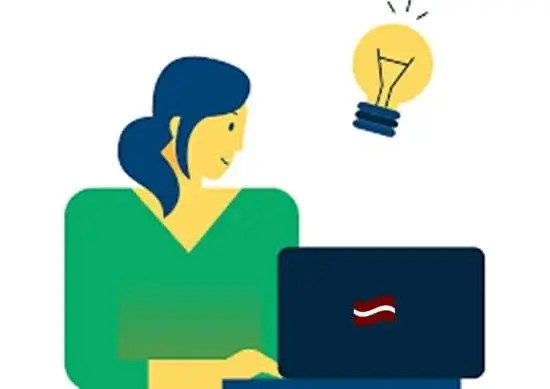Creative Professional. The Challenge of Long-Term Focus for Creative Minds. Professionals often encounter significant challenges when attempting to maintain long-term focus.
Unlike routine tasks, which can be executed through systematic processes, endeavors that require creativity often lack clear structure.
This absence can lead to procrastination, a common behavior among artists, writers, designers, and other creatives.
For instance, a copywriter may find themselves mired in brainstorming sessions, struggling to refine their ideas into a coherent narrative due to an overwhelming pressure to innovate.
Such distractions can prevent the completion of projects, leading to setbacks and frustrations.
Furthermore, the very nature of creative work often involves fluctuating inspiration levels.
For example, graphic designers might find that moments of artistic clarity can be fleeting and unpredictable.
This variability contributes to difficulties in concentrating on long-term goals, as creative minds may pursue immediate bursts of inspiration instead of systematically working toward the completion of larger projects.
As a result, the long-term vision can become obscured by the daily demands of executing various tasks, leading to a chaotic work environment.
Creative Professional Freelancers.
Face unique pressures that exacerbate this challenge. Individuals like website designers frequently juggle multiple clients, each with its own deadlines and expectations.
The constant need to shift focus between different projects can lead to fragmented attention and lost momentum.
Additionally, the competition within creative fields adds pressure to consistently produce high-quality work, which can further disrupt focus.
Ultimately, the interplay between creativity and the need for structure necessitates the employment of effective time management strategies.
By addressing these inherent obstacles, creative professionals can enhance their ability to focus on long-term tasks while balancing the distinct demands of their profession.
Poor Time Management, Consequences.
Effective time management is essential for creative professionals to thrive in their fields.
When this vital skill is neglected, the repercussions can be profound and multifaceted. One of the most significant consequences is the onset of health issues such as stress and burnout.
In a fast-paced creative environment, the inability to manage time efficiently often leads to overwhelming workloads, which can manifest as chronic stress.
According to a study by the American Psychological Association, creatives who struggle with time management are significantly more likely to report symptoms of burnout.
A condition characterized by emotional fatigue and a detachment from one’s work.
Additionally, poor time management can directly affect financial stability.
Creative professionals often rely on project-based earnings, making inconsistent timelines and last-minute rushes common pitfalls.
The result is frequently delayed payments and irregular income, exacerbating financial strain.
A survey by Freelancer Union indicated that 63% of freelancers experience irregular income, which is often linked to insufficient time management practices that lead to incomplete projects or missed deadlines.
The emotional toll of inadequate time management cannot be overlooked either.
Many creative individuals report feelings of unfulfillment and dissatisfaction when they cannot allocate appropriate time to their projects.
The psychological impact of feeling stuck or overwhelmed can lead to a lack of motivation and even creative block.
A study published in the “Journal of Creative Behavior” highlighted that professionals who reported high levels of stress due to time management issues were also more likely to feel less accomplished and engaged in their creative pursuits.
In conclusion, the ramifications of poor time management encompass physical, financial, and emotional dimensions.
By recognizing these significant consequences, creative professionals can better appreciate the importance of effective time management strategies to foster not only their productivity but also their overall well-being.
The Importance of Planning and Follow-Through.
Establishing a structured approach to planning and follow-through is essential for creative professionals aiming to manage their time effectively.
A well-thought-out plan serves as a foundation upon which creativity can thrive.
When individuals delineate their goals, timelines, and required resources, they create a roadmap that enhances focus, minimizes distractions, and directs energy toward meaningful creativity.
This framework not only aids in organizing thoughts but also allows for innovative ideas to be generated within specific constraints, ultimately fostering a more productive creative environment.
Moreover, effective planning encourages individuals to prioritize tasks based on urgency and significance, facilitating smoother execution.
By breaking projects into manageable components, creative professionals can allocate their time wisely, enabling them to produce high-quality work without feeling overwhelmed.
This systematic approach ensures that each phase of a project receives adequate attention, enhancing the likelihood of successful outcomes.
When individuals observe progress through sustained follow-through, it bolsters motivation and reinforces a sense of accomplishment.
Additionally, efficient time management positively impacts overall health and well-being.
By implementing a structured planning process, creative professionals can reduce stress associated with last-minute deadlines or disorganization.
Improved work-life balance results from having designated time for both personal and professional pursuits, leading to increased satisfaction in all areas of life.
When individuals manage their time effectively, they often find they have more hours to engage in self-care activities, hobbies, and spending quality time with loved ones, which are all crucial for maintaining a healthy lifestyle.
Thus, by embracing the significance of planning and follow-through, creative professionals can enhance their time management skills, ultimately leading to greater fulfillment in their careers and personal lives.
Practical Strategies for Effective Time Management.
Effective time management is crucial for creative professionals who often juggle multiple projects and deadlines.
Implementing actionable strategies can significantly enhance productivity and ensure that tasks are completed efficiently.
One of the fundamental steps in this journey is to set specific, measurable, achievable, relevant, and time-bound (SMART) goals.
By clarifying objectives, creatives can prioritize their efforts and eliminate distractions, leading to a more focused work approach.
Another technique is to break projects into manageable tasks.
Large projects can often be overwhelming; fragmenting them into smaller, actionable steps makes them less daunting and more achievable.
For example, instead of viewing a writing assignment as a single entity, outline the key sections and set individual deadlines for each part.
This not only provides a sense of accomplishment as tasks are completed but also facilitates ongoing progress tracking.
Scheduling focused work periods is also essential.
Techniques such as the Pomodoro Technique, where individuals work for 25 minutes followed by a 5-minute break, can help maintain concentration and energy levels.
Designating specific time blocks for deep work creates an environment conducive to creativity, preventing the fragmentation of attention often caused by multitasking.
Utilizing tools for tracking progress can enhance accountability and motivation.
Project management applications—such as Trello, Asana, or even simple to-do lists—offer visual representations of task progression and deadlines.
These platforms allow creative professionals to see their workload at a glance and adjust priorities as needed, ultimately leading to better time management.
Finally, maintaining motivation while working independently can be challenging.
Setting up regular check-ins with peers or mentors can foster a sense of community and encourage accountability.
Sharing progress and aspirations with others helps in cultivating a proactive approach, ensuring that creative professionals remain committed to fulfilling their objectives.
You Good Day!





